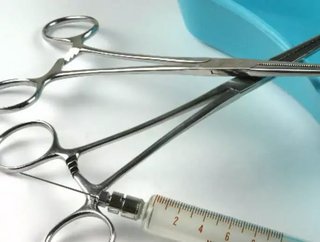WHO warns illegal organ trade is increasing rapidly

The illegal trade of organs on the black market is increasing rapidly across the world, the World Health Organisation (WHO) has warned.
It is thought a rise in diabetes and other non-communicable diseases are to blame, as demand far outweighs the availability of healthy organs.
The WHO has estimated approximately 10,000 organs are traded illegally on the black market every year, and kidneys are the most popular, accounting for 75 percent of the overall trade.
According the Guardian newspaper, which carried out an investigation into the trend, people are willing to pay as much as US$200,000 for an organ on the black market.
To read the latest edition of Healthcare Global, click here
- Customer service staff to get dementia training
- Gene discovery could lead to contraceptive pill for men
- UK confirms rabies case following dog bite
Areas such as China, India and Pakistan are where the problem is most prevalent, and where it is being fuelled by gangs.
Commenting on the trend, an official from the WHO, told the Guardian: “The illegal trade worldwide was falling back in about 2006-07 – there was a decrease in 'transplant tourism’.
“The trade may well be increasing again. There have been recent signs that that may well be the case.
“There is a growing need for transplants and big profits to be made.
“It's ever growing, it's a constant struggle. The stakes are so big, the profit that can be made so huge, that the temptation is out there.”
Noel believes that lacking legal systems and minimal law enforcement makes it too easier for organ traffickers to target vulnerable members of the community.
They often tempt them by saying if they sell their organs, they will be able to afford the latest gadgets, such as the new iPad.
In total 106,879 organ transplants – both legal and illegal – were carried out in 2010, and Noel estimates one in 10 of these transplants occurred on the black market.
Also speaking to the Guardian, a professor of renal medicine at University Hospitals of Leicester NHS trust, Jim Feehally, said: “We know of countries in Asia, and also in eastern Europe, which provide a market so that people who need a kidney can go there and buy one.
“The people who gain are the rich transplant patients who can afford to buy a kidney, the doctors and hospital administrators, and the middlemen, the traffickers.
“It's absolutely wrong, morally wrong.”
The Healthcare Global magazine is now available on the iPad. Click here to download it.
- WHO Health Chatbot Built on 'Humanised' GenAIDigital Healthcare
- Global effort can end pandemic in 2022 - WHOTeleHealth & COVID-19
- Four ways in which Watson is transforming the healthcare sectorTechnology & AI
- The World Health Organisation aims to transform healthcare in KenyaDigital Healthcare






